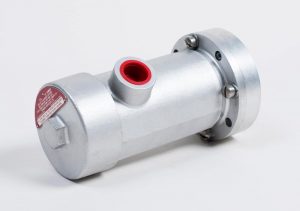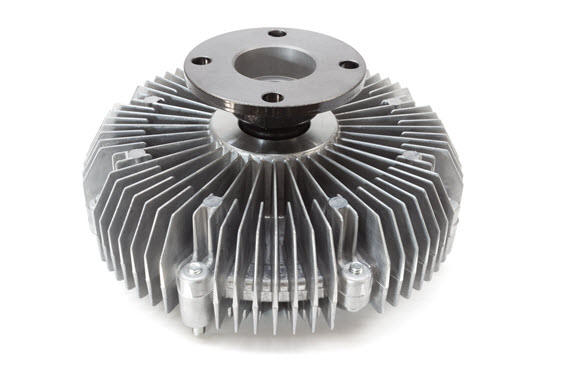The role of Aluminum Castings in automotive and aerospace industries
The Relevance of Aluminum Foundry ahead of time Industrial Production Techniques
The Aluminum Foundry plays an essential role in the evolution of industrial manufacturing techniques. Its lightweight properties and flexibility make Aluminum an optimal selection for numerous applications. Advanced casting approaches, consisting of die casting and 3D printing, enable for complex styles and automation. As the market shifts in the direction of automation and sustainability, concerns develop about the future trajectory of Aluminum shops and their influence on making effectiveness. What challenges and innovations lie in advance?
The Duty of Aluminum in Modern Manufacturing
Aluminum plays a critical role in modern-day production due to its unique properties and flexibility. As a lightweight metal, it notably reduces the total weight of items, boosting gas performance in transport and aerospace sectors. Its exceptional deterioration resistance warranties long life and dependability, making it perfect for numerous applications, from automotive parts to developing materials. Aluminum's pliability allows it to be quickly formed right into intricate styles, facilitating ingenious item advancement. Moreover, its conductivity makes it ideal for electrical applications, adding to advancements in electronic devices and renewable resource technologies. The adaptability of Aluminum also reaches its recyclability, which adds to lasting production techniques. As industries remain to prioritize efficiency and environmental obligation, Aluminum remains a crucial product, promoting innovation and boosting production procedures across numerous industries. Its duty is not merely useful; it is foundational to the development of modern commercial practices.
Key Advantages of Aluminum Casting
The benefits of Aluminum spreading are considerable, adding to its appeal in numerous commercial applications. One vital advantage is the lightweight nature of light weight aluminum, which decreases transportation costs and boosts fuel performance in automobile and aerospace sectors. Furthermore, aluminum's exceptional rust resistance prolongs the lifespan of cast parts, making them ideal for marine and outside settings.
In addition, Aluminum spreading enables for complex geometries and complex layouts, providing suppliers with better versatility in product development - Metal Castings. The product likewise exhibits excellent thermal and electrical conductivity, making it appropriate for a range of electronic applications
Another advantage is the quick solidification procedure, which causes finer microstructures and improved mechanical residential properties. Furthermore, Aluminum can be reused repetitively without losing its intrinsic qualities, promoting sustainability in making practices. These advantages highlight Aluminum casting's critical function in advancing commercial manufacturing techniques while meeting varied engineering needs.
Ingenious Casting Strategies and Technologies
Many innovative casting strategies and innovations have actually emerged to boost the efficiency and top quality of Aluminum production. Among these, pass away spreading attracts attention as a method that permits for high-volume production of complicated forms with exceptional dimensional accuracy. This strategy uses high pressure to infuse liquified Aluminum right into a mold, resulting in smooth surface areas and lowered need for machining.
One more notable innovation is the usage of 3D printing for mold and mildews, which allows fast prototyping and lowers lead times substantially. This innovation enables elaborate designs that standard approaches might struggle to accomplish.
Furthermore, investment spreading continues to advance, using innovative materials and procedures to develop precision elements. The fostering of computer simulations in the spreading procedure has additionally improved results by forecasting possible flaws and optimizing mold layouts. Together, these innovations are changing Aluminum factories, leading the means for much more effective production and remarkable item top quality in various sectors.
Environmental Effect and Sustainability in Aluminum Foundries
As markets increasingly prioritize sustainability, the environmental influence of Aluminum shops has come under scrutiny. These facilities are significant contributors to greenhouse gas emissions and energy usage, mainly as a result of the energy-intensive procedures associated with melting and casting aluminum. The extraction of bauxite, the primary ore, further exacerbates environmental problems, resulting in habitat damage and contamination.
In reaction to these challenges, many Aluminum shops are taking on a lot more lasting techniques (Aluminum Foundry). Developments such as reusing scrap Aluminum considerably minimize energy use and emissions, as recycling requires only a portion of the energy required for main production. Furthermore, the assimilation of renewable resource resources, such as solar and wind power, is acquiring grip in factories aiming to reduce their carbon footprint
Furthermore, innovations in innovations that reduce waste and boost resource efficiency are becoming essential for the future of the Aluminum industry. These efforts highlight the shift in the direction of a more environmentally responsible and lasting approach in Aluminum factories.
Applications of Aluminum Spreading Throughout Industries
Aluminum spreading finds prevalent application across varied markets, owing to its favorable buildings such as lightweight, rust resistance, and exceptional machinability. In the automobile field, suppliers make use of Aluminum castings for engine elements, transmission real estates, and architectural parts, boosting gas efficiency and performance. The aerospace market gain from aluminum's strength-to-weight ratio, using it in airplane frames and elements, which add to reduced total weight and boosted fuel economy.
The customer electronic devices sector employs Aluminum spreadings for real estates and chassis, integrating visual appeal with toughness. In construction, Aluminum castings are used for window frameworks, doors, and building components, giving both performance and design versatility. Furthermore, the marine industry uses Aluminum casting find here for boat hulls and installations, guaranteeing resistance to saltwater rust. This flexibility across different areas underscores Aluminum casting's essential function in modern-day industrial applications, driving technology and performance.
Obstacles Faced by Aluminum Foundries
Aluminum factories run into considerable challenges in meeting stringent ecological regulations while maintaining operational efficiency. In addition, a lack of experienced labor exacerbates these troubles, impeding efficiency and innovation. Resolving these problems is important for the sustainability and development of the Aluminum casting sector.
Ecological Regulations Conformity
Aluminum shops play an important role in commercial manufacturing, they frequently face considerable difficulties in conforming with environmental laws. These laws are developed to minimize air and water air pollution, waste generation, and power intake. Foundries normally should spend in advanced technologies to satisfy strict exhaust standards and take care of hazardous materials successfully. The costs connected with these upgrades can strain monetary sources, particularly for smaller procedures. In addition, the complexity of going across regulative structures can cause conformity mistakes, causing pricey fines. Constant modifications in policies require foundries to adapt swiftly, often requiring continuous training and updates in operational practices. Stabilizing regulatory conformity with production efficiency remains a critical worry for the Aluminum Foundry market.
Proficient Labor Lack
As the Aluminum Foundry industry proceeds to progress, a pressing challenge has actually arised: a proficient labor shortage that intimidates the market's productivity and development. This shortage is primarily sustained by an aging labor force and the absence of interest amongst more youthful generations in seeking occupations in manufacturing. Several knowledgeable jobs need specialized training and experience, which are significantly hard to find. Light weight aluminum factories struggle to preserve operational performance, leading to delays and enhanced manufacturing expenses. Initiatives to draw in new talent with apprenticeship programs and collaborations with schools are underway, yet these efforts require time to yield results. Without a robust influx of knowledgeable workers, the Aluminum Foundry sector may deal with significant obstacles in fulfilling the needs of modern commercial manufacturing.
Future Trends in Aluminum Foundry Production Techniques
The future of Aluminum Foundry manufacturing strategies is poised to be significantly formed by advancements in automation and lasting product innovations. Automation is anticipated to improve effectiveness and accuracy in Foundry procedures, lowering labor costs and lessening human error (Aluminum Foundry). A growing emphasis on sustainability will drive the advancement of environment-friendly products and practices, aligning the industry with global environmental goals.
Automation in Foundry Processes

Lasting Material Innovations
While the Aluminum Foundry sector accepts automation, an identical focus on sustainable material innovations is improving manufacturing methods for the future. Advancements in reusing processes are allowing factories to utilize post-consumer light weight aluminum, noticeably decreasing power usage and waste. Moreover, the development of environmentally friendly ingredients and coverings is reducing the ecological impact connected with standard products. Advancements in lightweight Aluminum alloys are boosting efficiency while advertising sustainability, making items not just a lot more effective but additionally less complicated to recycle at the end of their life cycle. As the industry adapts to stricter ecological policies, these lasting techniques are ending up being essential. Eventually, the dedication to sustainable material advancements in Aluminum shops will certainly drive improved performance while attending to international ecological obstacles.
Regularly Asked Concerns
Exactly How Does Aluminum Contrast to Other Steels in Casting?
Aluminum uses benefits over other metals in casting, consisting of lower melting points, excellent fluidity, and resistance to corrosion. These residential or commercial properties allow elaborate styles and faster manufacturing, making Aluminum a preferred choice for many markets.
What Precaution Remain In Area in Aluminum Foundries?
Safety measures in Aluminum foundries consist of safety gear for workers, correct air flow systems, routine devices maintenance, fire prevention methods, and stringent adherence to security guidelines, guaranteeing a protected environment while decreasing the threat of injuries and crashes.
Just How Are Aluminum Alloys Selected for Certain Applications?
Aluminum alloys are chosen based upon mechanical properties, corrosion resistance, and thermal conductivity. Engineers review application needs, thinking about elements like weight, strength, and ecological conditions, making certain excellent efficiency for certain industrial or business uses.
What Is the Ordinary Life Expectancy of Aluminum Cast Products?
The average life expectancy of Aluminum cast products generally varies from 20 to 50 years, depending upon ecological aspects, use problems, and upkeep methods. Correct care can substantially extend their practical durability and try these out performance efficiency.

Exist Qualifications for Aluminum Foundry Processes?
Yes, there are certifications for Aluminum Foundry processes, including ISO 9001 for quality administration systems and details industry requirements like ASTM click this site and SAE, which assure adherence to top quality and safety in Aluminum production and spreading.
Aluminum foundries play a necessary role in industrial production, they usually face significant difficulties in conforming with environmental regulations. Aluminum foundries have a hard time to preserve operational efficiency, leading to hold-ups and boosted production expenses. The future of Aluminum Foundry production techniques is poised to be significantly shaped by advancements in automation and lasting material technologies. Increasingly, automation is shaping the landscape of Aluminum Foundry production techniques, driving effectiveness and precision. While the Aluminum Foundry market accepts automation, an identical emphasis on sustainable product technologies is improving manufacturing methods for the future.